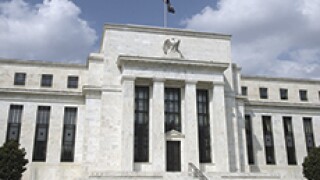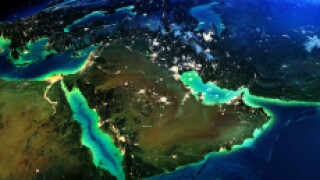Middle East Bonds
-
The Bank of Bahrain and Kuwait has picked banks for a dollar benchmark, following a roadshow.
-
Saudi Arabian banks Alawwal Bank and Saudi British Bank have completed their merger. The deal is yet another bank tie-up taking place in the Gulf, as lenders strive to stay competitive. Royal Bank of Scotland, which held a stake in Alawwal, has received capital relief from the transaction.
-
Emerging market bankers forecasted on Monday a spate of deals from across the EMEA region due this week, as Sharjah Islamic Bank joined the fray with a sukuk mandate that will begin with a spell of investor meetings.
-
The Federal Reserve is losing confidence in the US economy, global economic growth is flagging and Treasury yields are staggeringly low. Emerging market assets, meanwhile, are full of beans, as low rates and healthy risk appetite provide a magic combination for EM companies looking to raise capital. But the Fed is worried for a reason: there’s trouble ahead, write Lewis McLellan and Sam Kerr.
-
A pair of Middle Eastern banks, Emirates NBD and Abu Dhabi Commercial Bank, both placed short-dated sterling MTNs this week.
-
-
Kuwait International Bank (KIB) made a spectacular bond market debut on Wednesday, securing a $4.6bn book for a $300m additional tier one sukuk bond. The issuer also impressed by placing 51% of the paper with investors from outside the Middle East region.
-
Kuwait International Bank has come to market for its first ever bond — a $300m additional tier one capital benchmark. It has met strong demand, despite the limited size.
-
The International Federation of Red Cross and Red Crescent Societies (IFRC) plans to issue a sukuk as part of its fundraising for a water, sanitation and hygiene programme.
-
Hitesh Asarpota, a managing director at Emirates NBD Capital, has taken over loans syndication, in addition to his current responsibilities.
-
Kuwait International Bank hit screens on Tuesday morning announcing a roadshow for its first ever bond — an unrated additional tier one sukuk with a five year call date.
-
Majid Al Futtaim (MAF) brought the world’s first benchmark green corporate sukuk to market last week. Chief executive Alain Bejjani said the format had helped the leads price the deal tighter and that they would return to the green market.










